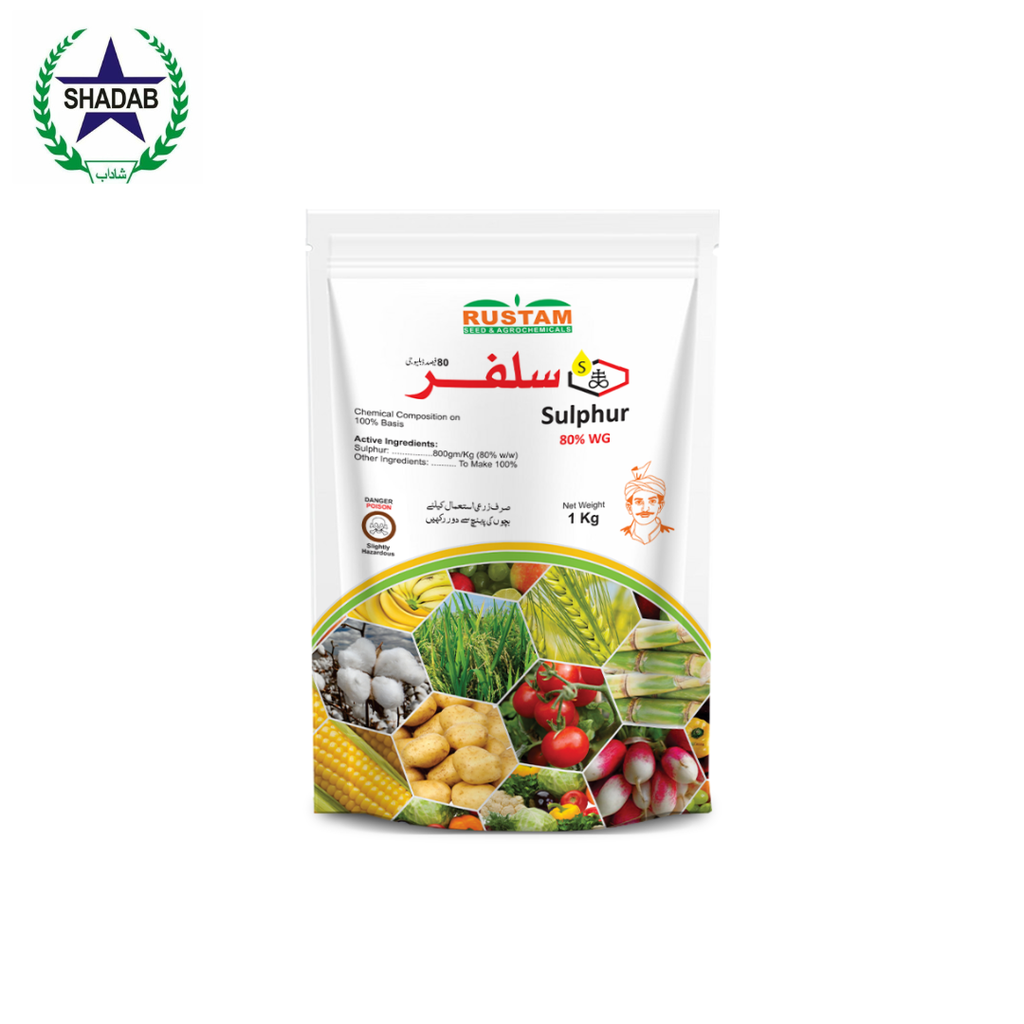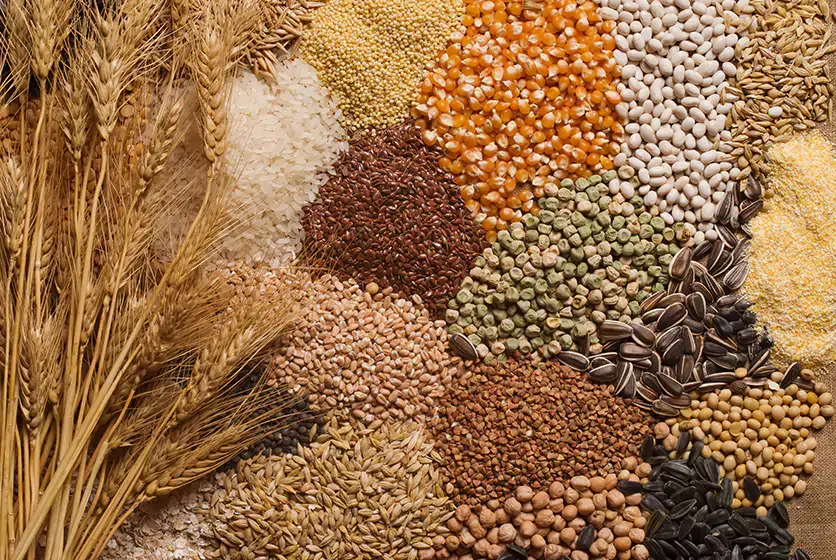سلفر (S) ایک اہم عنصر ہے جو مختلف فصلوں کے ذریعہ تیار کردہ تیل کے بیج کے معیار کو متاثر کرتا ہے۔ یہ نائٹروجن (N)، فاسفورس (P)، اور پوٹاشیم (K) کے بعد چوتھے ضروری غذائیت کے طور پر پہچانا جاتا ہے، کیونکہ فصلوں کو فاسفورس سے قدرے کم مقدار میں سلفر کی ضرورت ہوتی ہے۔ یہ غذائیت پروٹین، وٹامنز، اور کلوروفیل کی ترکیب کے لیے بہت ضروری ہے، اور یہ امینو ایسڈ جیسے سیسٹین، سیسٹین، اور میتھیونین کا ایک لازمی حصہ بناتا ہے، جو پروٹین کی ساخت کے لیے بنیادی حیثیت رکھتے ہیں۔ SO4 2-)، جو بعد میں عنصری سلفر میں گل جاتا ہے۔ سلفر کی موجودگی بیجوں کی زیادہ پیداوار حاصل کرنے اور تیل کے بیجوں کی فصلوں میں تیل کی مقدار کو بڑھانے میں ایک اہم عنصر ہے۔ پودوں کے اندر گندھک کی غیر متحرک نوعیت کی وجہ سے، فصل کے نکلنے سے لے کر پختگی تک مسلسل سپلائی فراہم کرنا ضروری ہے۔ کسی بھی ترقی کے مرحلے میں سلفر کی کمی پیداوار میں کمی کا باعث بن سکتی ہے۔ سلفر کے مختلف ذرائع میں سے، عنصری سلفر اور جپسم عام طور پر فصلوں میں سلفر کی کمی کو دور کرنے کے لیے استعمال ہوتے ہیں۔ تیل کے بیجوں کی فصلوں کی پیداوار اور معیار دونوں کو بہتر بنانے کے لیے اس غذائی اجزاء کی مناسب فراہمی کو یقینی بنانا بہت ضروری ہے۔ یہ اناج کے وزن، تیل کی فصلوں میں تیل کی مقدار اور اناج کے سائز کو بھی بڑھاتا ہے۔
Sulfur (S) is a crucial element influencing the quality of oilseed
produced by various crops. It is recognized as the fourth essential nutrient,
following nitrogen (N), phosphorus (P), and potassium (K), as crops require
sulphur in slightly lesser amounts than phosphorus. This nutrient is vital for
the synthesis of proteins, vitamins, and chlorophyll, and it forms an integral
part of amino acids such as cystine, cysteine, and methionine, which are
fundamental to protein structure.Plants absorb sulphur primarily in the form of
sulphate (SO4 2-), which subsequently decomposes into elemental sulphur. The
presence of sulphur is a significant factor in achieving higher seed yields and
enhancing the oil content in oilseed crops. Due to the immobile nature of
sulphur within plants, it is essential to provide a continuous supply from the
time of crop emergence until maturity. A deficiency in sulphur at any growth
stage can lead to reduced yields.To address sulphur deficiency, it is important
to apply sulphur-containing fertilizers through soil or foliar application.
Among the various sources of sulphur, elemental sulphur and gypsum are commonly
used to rectify sulphur shortages in crops. Ensuring an adequate supply of this
nutrient is vital for optimizing both the yield and quality of oilseed crops.It
also increases grain weight, oil content in oil crops, and grain size.






